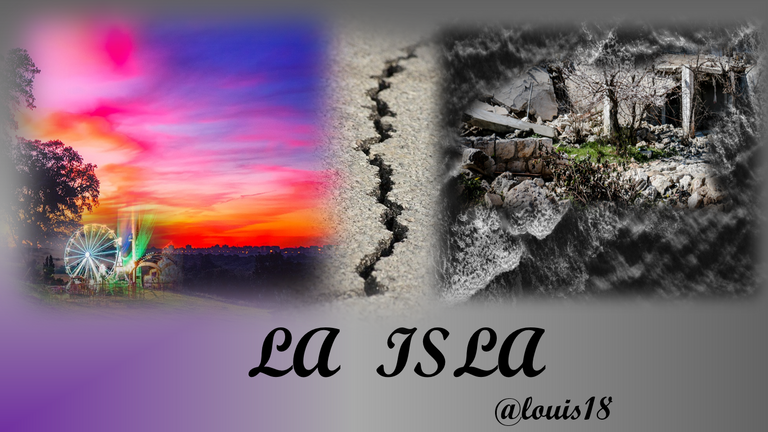
Ese ir y venir de ese mar embravecido, transformó ese pedazo de tierra flotante, en una isla poco habitada, y su superficie se convirtió casi en su totalidad, en un manto rocoso e intraficable. Esto ocurrió de forma fugaz y repentina, propiciada y como efecto, del fenómeno que dio origen a esta devastación. Ella, antes de ser extraída de su lugar de origen, se trajo consigo una incipiente parte de sus habitantes que lograron sobrevivir con mucho esfuerzo y asirse a las raíces de su tierra, que quedaron al descubierto y se entremezclaban con el lodo, que una vez les sirvió de cimiento y las nutría.
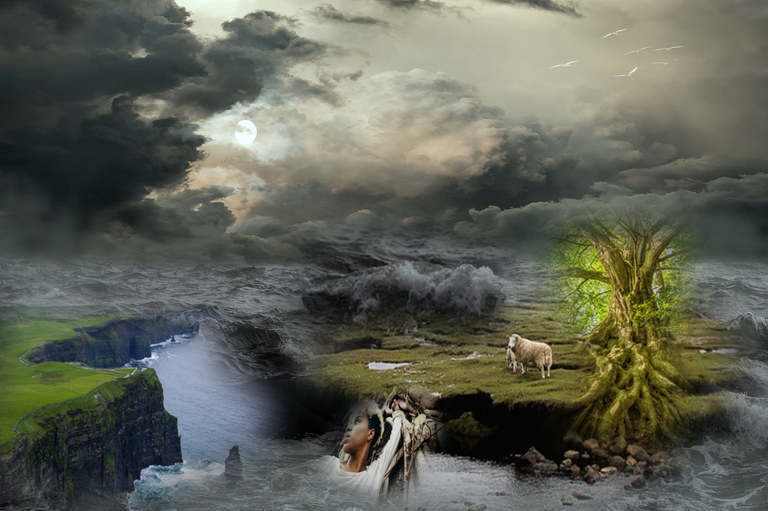
Ese país que se había empequeñecido tanto, que se convirtió de repente en una especie de balsa salvavidas, para aquellos que aun quedaron con materia y energía, a consecuencia de ese desastre natural, había arrastrado entre sus restos, una pequeña porción de la flora y fauna que en otrora la constituían, pero estaban muy azotadas y castigadas, y no se parecían en nada a la belleza parecida a la del quetzal con en el que antes se confundían, y que representaron en un pasado parte de las mayores reservas de biodiversidad mundial, y lo que quedó de ella ahora se pasea por lo inverosímil.
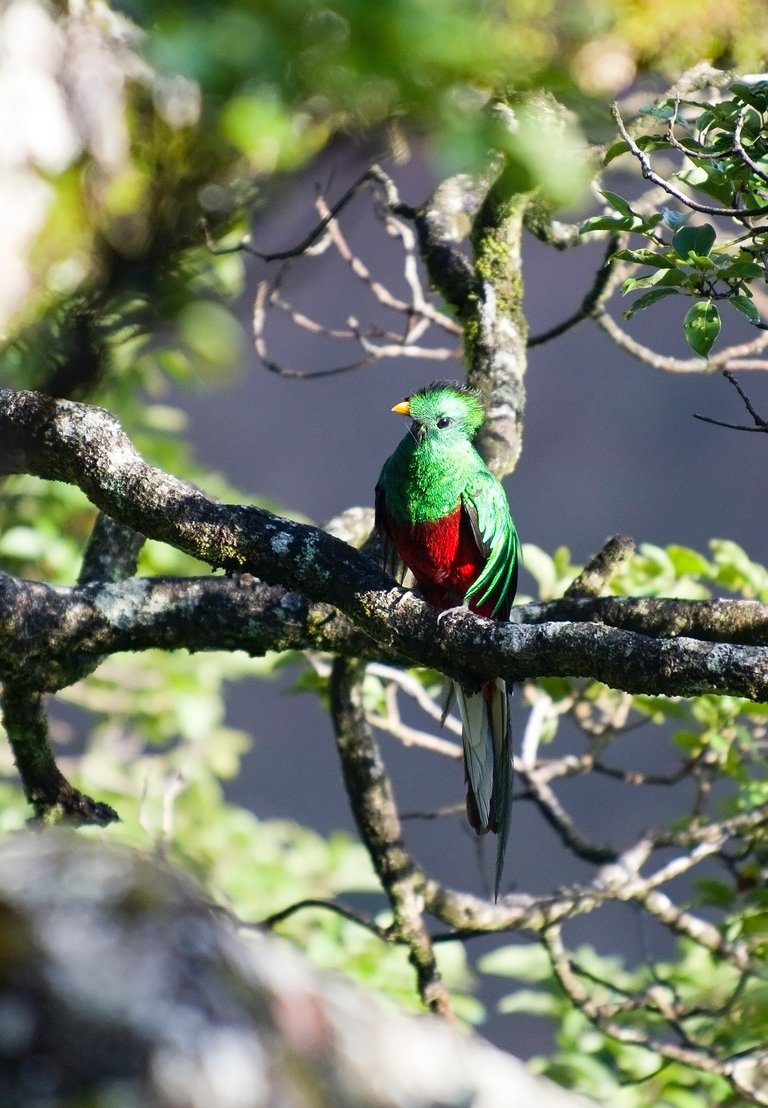
Pero después de ese gran desastre, sismo o terremoto, como se quiera calificar, de unos grados de magnitud muy altos, que aún están por determinarse, eso que se llamó país quedó muy diezmado, no solo en territorio y en el aspecto demográfico, como usualmente puede pasar después de un acontecimiento de este tipo y lo cual puede ser cuantificable, sino también en el aspecto emocional de las especies que lograron preservar su existencia. La frustración de haber perdido seres queridos, la toponimia, la identidad, con todo lo que ella contiene, sus habitantes paralelamente también extraviaron todo el estalaje básico para su subsistencia, partiendo desde sus hogares, el cual encierra lo más valioso de una familia, la axiología, recursos, lazos afectivos desde donde nace y estructura su cosmovisión.
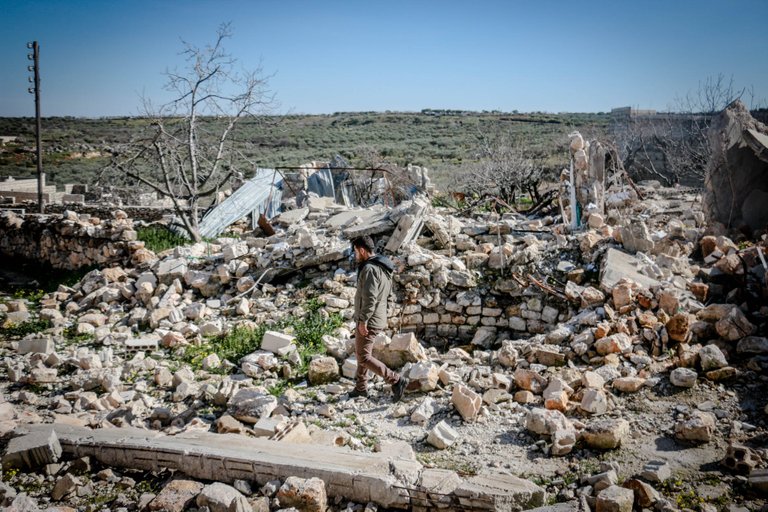
Además de lo anteriormente descrito, se palpa en ese espacio un ambiente brumoso con una carga de soledad y un silencio escalofriante, ya que la mayoría de sus habitantes fenecieron por la tragedia en sí, o tratando de escapar de la misma, pero en este aspecto el acontecimiento no fue tan fugaz, no fueron muertes rápidas, al contrario, fueron muy lentas y dolorosas, incluso se habla de saldos de muertes de características únicas, dignas de un estudio tanatológico para la doctora Kübler-Ross , como por ejemplo, las muertes del alma, ocasionadas por tanto sufrimiento, y una característica de ésta, es el hastío, esa tristeza profunda que mata desde adentro, desde lo sentimental, pasaron por la negación, la ira, depresión y hasta la aceptación, también hubo personas que perdieron la razón y deambulaban de un lado a otro, unos gritaban y otros lloraban en silencio, como que no supieran a donde ir, sin rumbo, sin brújula, por cierto este ultimo instrumento, tenía poca utilidad en esos restos de seres vivos que quedaron , porque cualquier dirección que agarraban daba igual, los conducía a lo mismo, al desastre al desorden, a la desolación.
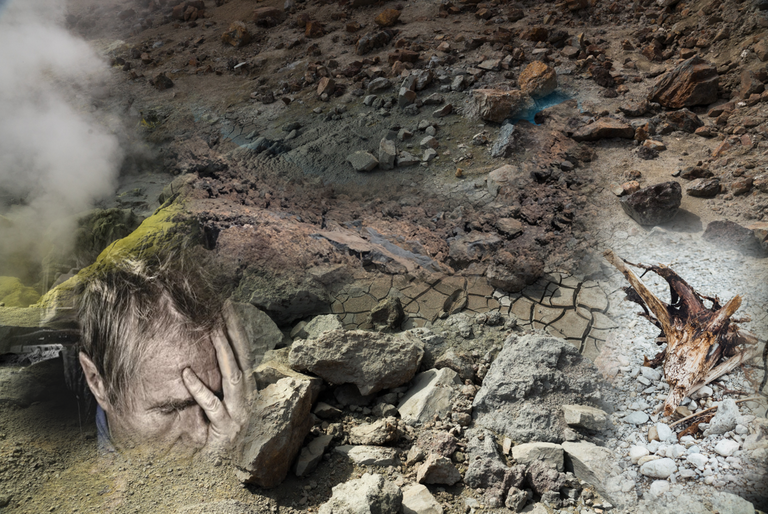
Ésta, la pérdida de la razón también pudo ocasionarse a consecuencia de haber visto menoscabarse la esperanza y la fe, las cuales son reforzadores primarios para el ser humano y muy importantes para apuntalar la vida, al menos desde lo afectivo, pero todas las descritas son igualmente terribles, porque está el ser vivo de por medio, y cualquiera de esas pérdidas son penosas.
Con el pasar de las horas y días en ese, que alguna vez fue llamado país, que luego mutó a isla en el más estricto apego a lo diminuto en lo físico-geográfico, los que iban poco a poco incorporándose y poniéndose de pie, después de aquel gran desastre, fueron entreayudándose y comenzaron nuevamente desde lo básico, a buscar el vital liquido, a hacer fuego con piedras o la fricción de la madera con las manos; la necesidad los llevó a convertirse en recolectores y vivían de la caza y de la pesca como nuestros antepasados, lo que acabó muy rápidamente con el mundo animal que quedó y que les proporcionaba el alimento. Se abrigaban debajo de los arboles que aun quedaron erguidos, acomodándose y usándolos de techos o como instrumento para hacer fuego e igualmente también fueron aprovechados para construir pequeñas chozas, con sus ramas secas o en proceso de marchitarse, las iban elaborando con sus manos trémulas con lo que conseguían, las cuales en esos días de abstinencia eran muy valiosas para la subsistencia, éstas las usaban para juntarse a darse calor como familia y hermanos de la vida, pero también para llorar unidos en el abrazo colectivo y tratar de apaciguar un poco, ese gran golpe que el destino les había dado.
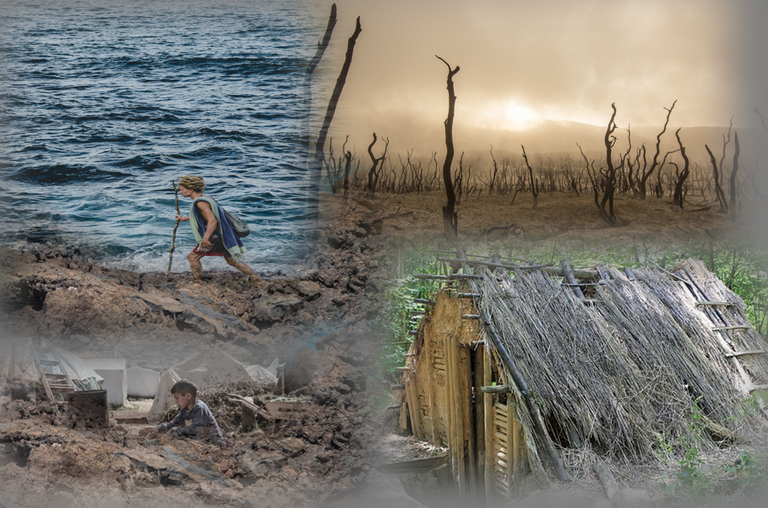
Luego otros, con un poco de más vigor y gallardía, que sacaron no sé de dónde, empezaron a hurgar entre los escombros que quedaron, y cada vez que conseguían algo que les podía ayudar a sobrevivir en ese mundo donde abundaba la necesidad y se curaba con mesura, se convertía en un verdadero hallazgo, un tesoro de mucha valía. Todo aquello lo iban asumiendo como un valor el cual alimentaba y los alentaba a seguir con vida en aquella vorágine y les brindaba fortaleza para poder sobrellevar aquello que estaban enfrentando. Lo poco que había en ese pedacito de tierra que quedo flotando en el océano y que cada vez se adentraba más y más a lo profundo de este inmenso mar, con el remover constante de esa gigantesca masa de agua, era tan singular, tan lejano y desconocido, que ningún barco o aeronave la tenían en su carta de navegación, así como tampoco radar alguno la detectaba, aunque tuviera la más alta tecnología. También sucedía un comportamiento verdaderamente extraño en la especie de pájaros de vuelo, digno para un estudio de la ciencia ornitológica, y era que las aves migratorias no la tenían en su itinerario de viaje, ni siquiera como sitio de descanso para reposar su incesante aletear, en ese desesperada mudanza que hacen cada determinado tiempo en busca de refugio, reproducción y crianza de su prole.
Como es natural, muchos se vieron perdidos, vencidos y atrapados en la desesperanza en esa pequeña isla y asumieron con valentía el escapar de ella, La poca flora y fauna que se mudó con ellos a la fuerza, se fue muriendo y agotando, así como moría y agotaba su esperanza día a día, aquello se iba convirtiendo en un microdesierto que ya no soportaba la vida de ninguna especie. Aquellos seres desesperados fueron improvisando pequeñas balsas que hacían atando troncos de árboles secos, material que abundaba en ese espacio sombrío. Luego de no pensarlo mucho, se lanzaban al mar desesperados, sedientos, presas de la inanición y la locura, porque el poco bastimento y agua que recogían de las tormentas que se presentaban de vez en cuando en ese espacio geográfico indeterminado, se estaba agotando, estaban a punto de caer en la antropofagia, pero sus principios morales, amarrados a su ética y a sus virtudes, pero sobre todo a ese poquito de fe que aun les quedaba guardado en un pequeño escondite de su corazón, no les permitía realizar esa práctica contra natura, aberrante y tan alejada de lo que habían aprendido cuando pertenecían a la civilización, a ese gran país de donde eran oriundos y donde les habían sembrado valores y sobre todo el amor y este se había desparramado por todo su ser y recirculaba en ellos como su sangre. Aun quedan algunos de estos seres vagando por la orilla de esa isla, con la vista perdida en el infinito y mirando el cielo de vez en cuando, no se sabe si implorando la muerte o será que aún queda el rescoldo de sus creencias que se avivan cada vez que sopla la brisa y les da una bocanada de ilusión, que los incita a seguir luchando contra la muerte que les hace sombra cada vez que caminan cabizbajos, tristes, abatidos y donde seguramente, afianzaron el valor o el don de agradecer.
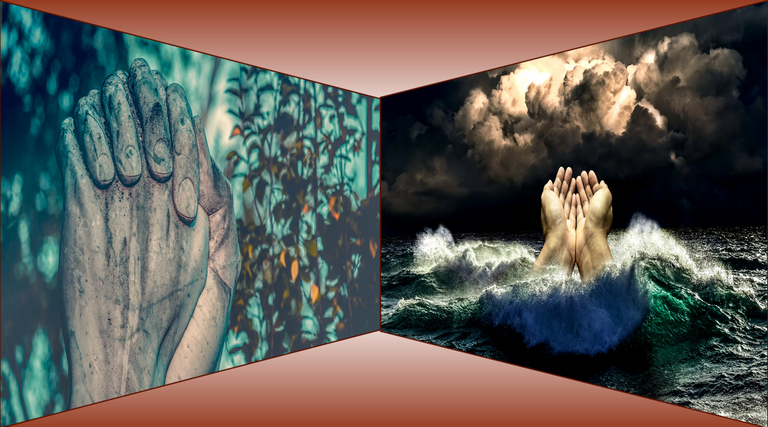
En el mundo hay situaciones que ponen a prueba al ser humano, hay retos que vencer y situaciones que sortear, por eso hay una obra artística, llamada la balsa de la Medusa, del pintor francés Théodore Géricault, que describe claramente las diferentes actitudes que asume el ser humano en los momentos finales de su vida. En esa obra se observan personas que se dejan derrotar y dejamos a la deriva todos nuestros esfuerzos, están los que dudan y nunca ven solución posible a las situaciones, asimismo se distinguen los que mantienen la calma y la esperanza con sus expectativas muy altas e igualmente, los que hacen esfuerzos descomunales por alcanzar sus metas, y no se dan por vencidos hasta no salir del problema. La balsa en esta obra representa la arquitectura axiológica de los seres humanos, es decir sus cimientos donde se encuentran sus virtudes, valores y creencias.
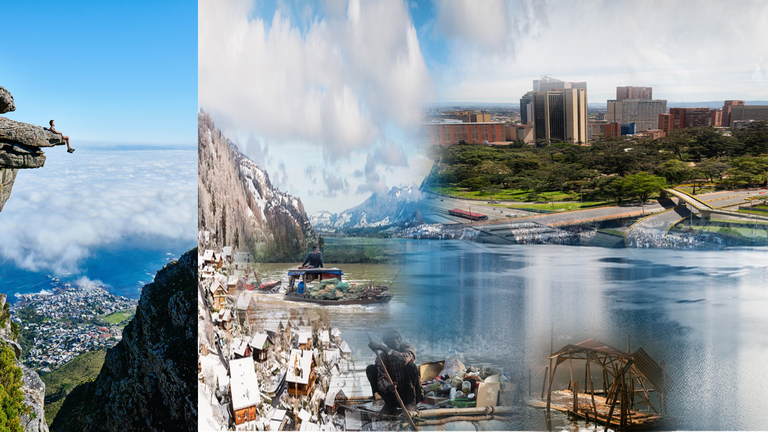
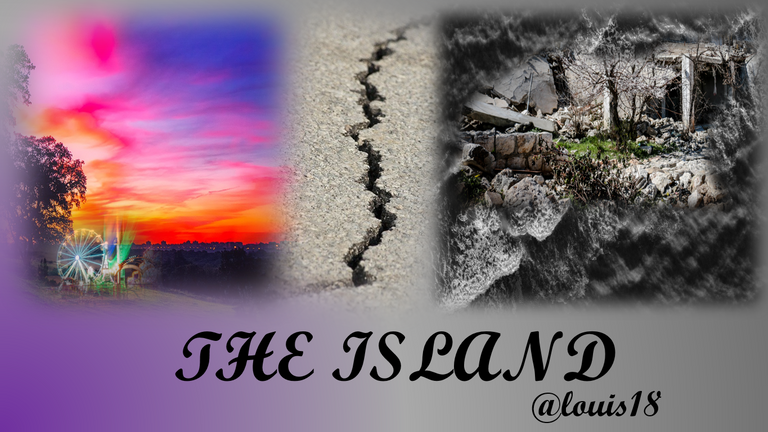
The comings and goings of that raging sea transformed that piece of floating land into a sparsely inhabited island, and its surface became almost entirely a rocky and intractable mantle. This happened in a fleeting and sudden way, propitiated and as an effect of the phenomenon that gave rise to this devastation. Before being extracted from its place of origin, it brought with it an incipient part of its inhabitants who managed to survive with great effort and cling to the roots of their land, which were exposed and intermingled with the mud that once served as a foundation and nourished them.

That country that had become so small that it suddenly became a kind of life raft for those who still had matter and energy left, as a result of that natural disaster, had dragged among its remains, a small portion of the flora and fauna that once constituted it, but they were very battered and punished, and were nothing like the beauty similar to that of the quetzal with which they were once confused, and which represented in the past part of the largest reserves of world biodiversity, and what was left of it now wanders through the implausible.

But after that great disaster, earthquake or earthquake, however you want to call it, of a very high magnitude, which is yet to be determined, that which was called country was decimated, not only in territory and demographically, as usually happens after an event of this type and which can be quantifiable, but also in the emotional aspect of the species that managed to preserve their existence. The frustration of having lost loved ones, the toponymy, the identity, with all that it contains, its inhabitants also lost all the basic elements for their subsistence, starting from their homes, which contains the most valuable of a family, the axiology, resources, affective ties from where their cosmovision is born and structured.

In addition to what has been described above, there is a misty atmosphere in this space with a load of loneliness and a chilling silence, since most of its inhabitants died because of the tragedy itself, or trying to escape from it, but in this aspect the event was not so fleeting, They were not quick deaths, on the contrary, they were very slow and painful, there is even talk of death balances of unique characteristics, worthy of a thanatological study for Dr. Kübler-Ross, such as, for example, the deaths of the soul, caused by so much suffering, and a characteristic of this, is boredom, that deep sadness that kills from within, from the sentimental, they went through denial, anger, depression and even acceptance, there were also people who lost their minds and wandered from one side to another, some screamed and others cried in silence, as if they did not know where to go, without direction, without a compass, this last instrument, by the way, had little use in those remains of living beings that were left, because any direction they took was the same, it led them to the same thing, to disaster, to disorder, to desolation.

This one, the loss of reason could also have been caused as a consequence of the loss of hope and faith, which are primary reinforcers for the human being and very important to support life, at least from the affective point of view, but all those described are equally terrible, because the living being is involved, and any of those losses are painful.
With the passing of the hours and days in that once called country, which later mutated into an island in the strictest attachment to the physical-geographical diminutiveness, those who were gradually incorporating and standing up, after that great disaster, were helping each other and began again from the basics, to look for the vital liquid, to make fire with stones or the friction of the wood with their hands; The need led them to become gatherers and they lived by hunting and fishing like our ancestors, which quickly put an end to the animal world that remained and that provided them with food. They sheltered under the trees that were still standing, accommodating themselves and using them as roofs or as instruments to make fire and also they were also used to build small huts, with their dry branches or in the process of withering, they were elaborating them with their trembling hands with what they got, which in those days of abstinence were very valuable for subsistence, they used them to get together to give warmth to each other as family and brothers of life, but also to cry together in a collective embrace and try to appease a little, that great blow that fate had given them.

Then others, with a little more vigor and gallantry, which they got from I don't know where, began to rummage through the rubble that remained, and every time they got something that could help them survive in that world where need abounded and was cured with moderation, it became a real find, a treasure of great value. All that they were assuming as a value which nourished and encouraged them to stay alive in that maelstrom and gave them strength to cope with what they were facing. The little that was in that little piece of land that remained floating in the ocean and that each time went deeper and deeper into the immense sea, with the constant stirring of that gigantic mass of water, was so singular, so distant and unknown, that no ship or aircraft had it on its navigation chart, nor did any radar detect it, even if it had the highest technology. There was also a truly strange behavior in the species of flying birds, worthy of a study of ornithological science, and it was that migratory birds did not have it in their travel itinerary, not even as a resting place to rest their incessant flapping, in that desperate move they make every so often in search of shelter, reproduction and breeding of their offspring.
Naturally, many were lost, defeated and trapped in despair on that small island and bravely assumed to escape from it, the little flora and fauna that moved with them by force, was dying and exhausted, just as their hope was dying and exhausted day by day, that was becoming a micro-desert that no longer supported the life of any species. Those desperate beings were improvising small rafts that they made by tying dry tree trunks, material that abounded in that somber space. After not thinking much, they threw themselves into the sea desperate, thirsty, prey to starvation and madness, because the little food and water they collected from the storms that occurred from time to time in that indeterminate geographical space, was running out, they were about to fall into anthropophagy, but their moral principles, tied to their ethics and their virtues, but above all to that little bit of food and water they collected from the storms that occurred from time to time in that indeterminate geographical space, were running out, but above all to that little bit of faith that was still kept in a small hiding place in their hearts, did not allow them to carry out this unnatural practice, aberrant and so far away from what they had learned when they belonged to civilization, to that great country where they were natives and where they had been sown values and above all love and this had spread throughout their being and recirculated in them as their blood. There are still some of these beings wandering along the shore of that island, with their eyes lost in the infinite and looking at the sky from time to time, it is not known if they are begging for death or if there is still the embers of their beliefs that are enlivened every time the breeze blows and gives them a breath of hope, which encourages them to continue fighting against death that shadows them every time they walk crestfallen, sad, dejected and where surely, they strengthened the courage or the gift of gratitude.

In the world there are situations that test the human being, there are challenges to overcome and situations to overcome, that is why there is an artistic work, called the Raft of the Medusa, by the French painter Théodore Géricault, which clearly describes the different attitudes that the human being assumes in the final moments of his life. In this work we can see people who let themselves be defeated and let all our efforts drift away, there are those who doubt and never see a possible solution to the situations, also distinguish those who remain calm and hopeful with very high expectations and also those who make enormous efforts to achieve their goals, and do not give up until they get out of the problem. The raft in this work represents the axiological architecture of human beings, that is to say, their foundations where their virtues, values and beliefs are found.


Gracias por asistir a PROMUEVE TU PUBLICACIÓN te esperamos el próximo miércoles a las 9:15 PM, saludos @louis18.
Amigo @louis18#2323 Te felicito porque trabajas con una aplicación, que yo todavía no sé usar, que es Canva. Me parece muy bueno tu relato y las imagenes te quedaron hermosas. Recuerda siempre señalar al final como las trabajaste y también, creo que la primera etiqueta debería seer: sapnish siempre que lo escribas en español y dentro de las primeras cinco describir el contenido
Congratulations @louis18! You have completed the following achievement on the Hive blockchain and have been rewarded with new badge(s) :
Your next target is to reach 300 upvotes.
You can view your badges on your board and compare yourself to others in the Ranking
If you no longer want to receive notifications, reply to this comment with the word
STOP